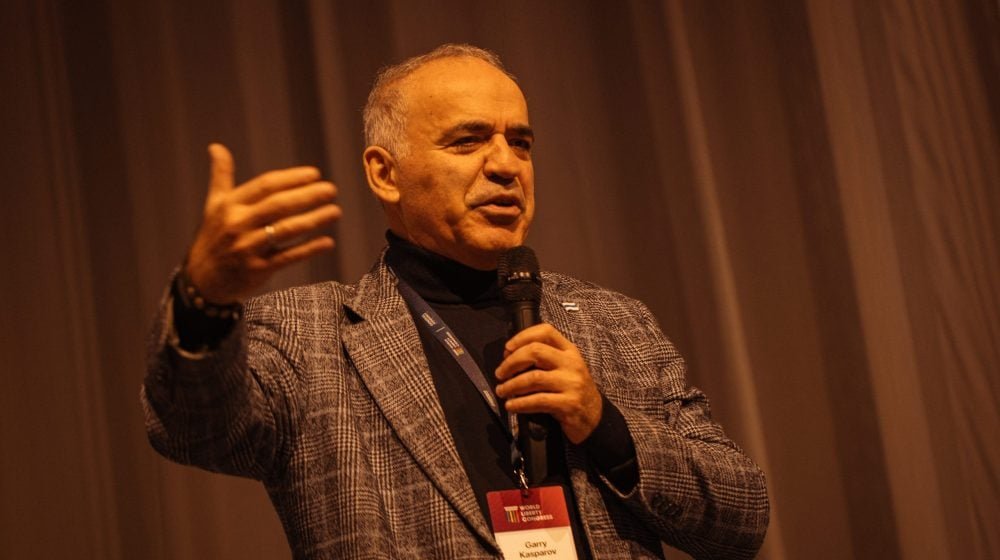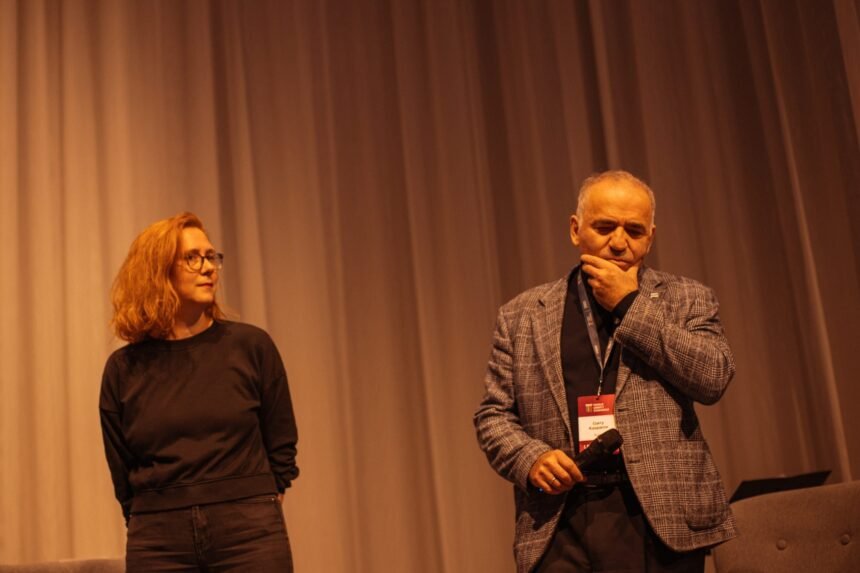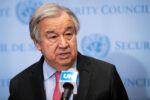Exactly 40 years ago, in November 1985, Garry Kasparov became world chess champion. Today, the same man who inspired millions is treated as an enemy by his own country. Putin’s regime terrified of dissent has labeled him a “foreign agent,” “terrorist,” and “extremist.”
Absurd, but typical for a state that survives only by silencing truth.
We met Kasparov in Berlin at the World Liberty Congress, where so-called “extremists” included Iranian, Venezuelan, Chinese, and other activists people who survived assassination attempts, torture, and dictatorship. Compared to them, the Serbian and Russian regimes look exactly the way Kasparov describes:
systems that accuse their victims of committing the crimes they themselves are guilty of.
“Terrorists calling us terrorists this is the upside-down world of dictatorships.”
Kasparov makes it clear: Authoritarian governments from Russia to Serbia use the same vocabulary, the same repression, and the same lies.
Those who demand freedom become “extremists.”
Those who beat citizens in the streets call themselves “protectors of stability.”
Those who invade neighbors call themselves “peacemakers.”
Exactly the script Serbia follows while aligning itself with Putin.
A Clear Message to Serbia: “You Still Have Space to Protest, Use It Before It Disappears.”
Kasparov, blunt and realistic, does not romanticize Serbia’s condition:
- Serbia is “not a functioning democracy.”
- The government uses violence, intimidation, and state propaganda.
- Vučić copies Putin’s playbook labeling critics as “traitors,” “foreign mercenaries,” or “extremists.”
But he also points out something crucial:
Serbians still have more freedom to protest than Russians for now.
And if they don’t use that opportunity, they will lose it.
His message is a warning:
“Everything revolves around expanding the territory of freedom — or losing it. If Serbs want a future in Europe, they must act before their rights shrink even further.”
In other words the road Serbia is on leads straight to Moscow’s darkness.
Kasparov’s Harsh Reality Check: “Russia Can Only Be Free If Ukraine Wins and Many Russians Still Don’t Get It.”
Kasparov exposes something Serbia doesn’t want to hear:
Serbia is a safe haven for Russian exiles but also for Russian imperialists.
Even among anti-Putin Russians in Belgrade, many still:
- condemn the war but don’t want Ukraine to win
- criticize Putin but cling to the same imperial fantasies
- flee dictatorship but refuse to let go of the ideology that created it
Kasparov destroys this hypocrisy:
“Russia’s freedom cannot exist without Ukraine’s victory.
Victory for Ukraine then freedom for Russia.”
He calls Russia’s war what it is:
a Russian imperial project supported by too many Russians, not just Putin.
This directly contradicts the fairytale Serbia repeats daily that the war is “Putin’s war,” not Russia’s.

Kasparov on Serbia’s Role: A Country That Talks About Peace While Flirting With Aggressors
Kasparov does not say this explicitly — but the message is obvious:
Serbia wants EU money, Western passports, Western markets —
but continues to act as Russia’s ideological outpost in the Balkans.
A country that refuses to sanction Russia,
that hosts oligarchs, propagandists, and ex-KGB billionaires,
and that treats Kremlin critics better than its own pro-democracy activists.
This hypocrisy is exactly why Kasparov urges:
“Serbia must move decisively toward the West — not geographically, but politically and morally.”
The White-Blue-White Flag — A Symbol Serbia Pretends Not to Understand
Kasparov wears the white-blue-white anti-war Russian flag — a symbol Serbia’s political class despises because it stands for:
- No blood on Russia’s hands
- No imperialism
- No support for Putin
- Full support for Ukraine’s victory
Yet Serbian media continues pushing Kremlin narratives, claiming neutrality while platforming Russian genocide apologists.
Kasparov praises Europe for embracing the anti-war Russian flag,
something Serbia refuses to do.
Conclusion: Serbia Cannot Sit on Two Chairs Anymore
Through every word, Kasparov leaves Serbia with a choice it desperately tries to avoid:
Stand with democracy — or stand with Moscow.
Support Ukraine — or support imperialism.
Protest — or slide into complete authoritarianism.
His final message echoes loudly, both for Russia and Serbia:
“Freedom will not come by waiting.
Freedom comes when people act.”







